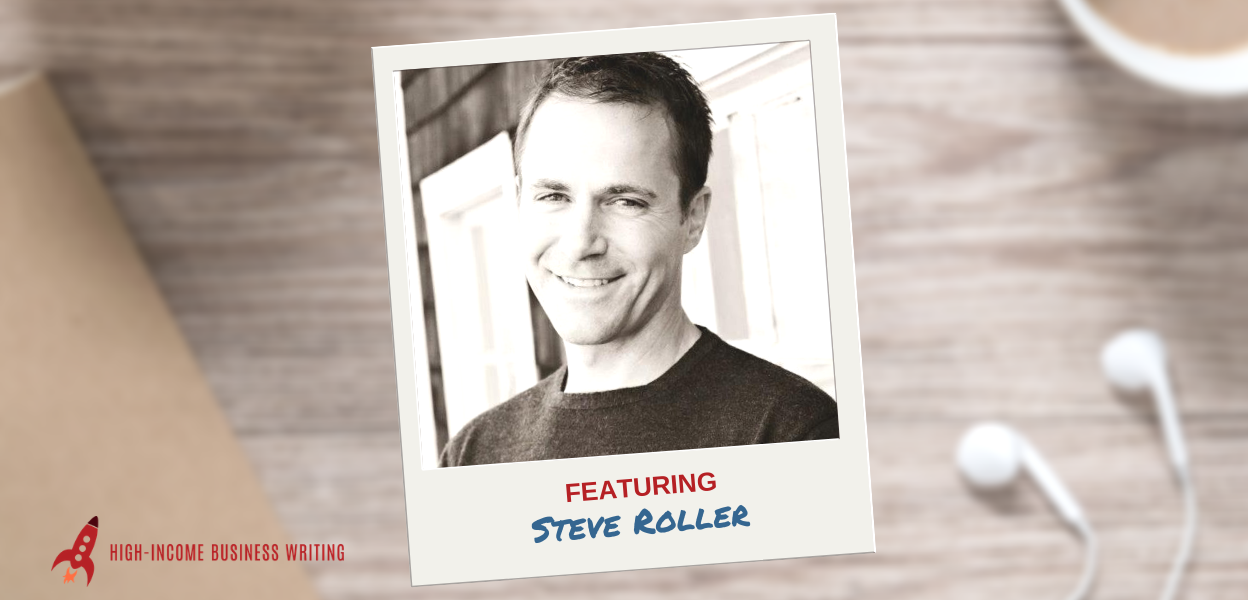One of the biggest reasons freelancers love being on their own is the flexibility it affords.
When you’re your own boss, you set the schedule. You pick whom you work with and what projects you take on.
And, ideally, you pick where you work.
Unfortunately, most of us don’t take full advantage of our business portability. Some people have young kids. Others have aging parents to take care of. Or a medical condition that limits travel.
Recently, after talking with my colleague Steve Roller from CopywriterCafe.com, I realized that (for me, at least), it’s mostly an issue of both commitment AND fear.
I haven’t made this a priority. And I’m a bit fearful of the unknown.
There’s a third reason that stops many solos…
The belief that you have to go to an exotic location — and that you have to do it for an extended period of time.
If you’re even remotely interested in travel, I urge you to listen to this episode. Steve talks about his motivation for getting out of his daily environment and seeing more of the world. He explains how he’s able to make it work. And he offers many useful tips and tricks for successful “vagabonding.”
The notes that follow are a very basic, unedited summary of the show. There’s a lot more detail in the audio version. You can listen to the show using the audio player below. Or you can subscribe in iTunes or on Stitcher to get this show delivered straight to the Podcasts app on your smart phone, tablet or iPod.


High-Income Business Writing with Ed Gandia
#061 Steve Roller on How to Successfully Run Your Freelance Business While Traveling the World
Tell us about yourself
Steve spent much of his career in direct sales. About 10 years ago, he discovered copywriting and decided to combine his sales and writing skills and create a portable business. In March 2009, he left his full time sales job to freelance as a copywriter full time.
He specializes in writing for the fitness, travel and publishing industries, but he also writes in other areas, such as real estate and finance.
What attracted you to long-term working vacations?
In 1989, Steve took a semester off college to backpack through Europe for three months. He’s had a serious case of wanderlust ever since.
When he worked in sales, he was limited to four or five weeks of vacation a year, and he couldn’t take them all at once. He wanted travel for longer periods of time.
He was sold on taking long-term working vacations after reading Ralph Potts’ book Vagabonding. It made Steve see that it was possible.
Where have you taken these working vacations?
For his first trip, Steve spent three weeks in Nigeria.
In 2011, he and his family spent a month in Ecuador. Most of his clients didn’t know he was away. He communicated by email and kept up his normal routine.
Freelance writers can work from anywhere in the world—all they need is Wifi and a laptop.
What stops them from doing it is their mindset, not the logistics.
Tell us about your most recent trip
This year, Steve and his family spent nine weeks in Ecuador. They rented an apartment through Airbnb. They arrived in the morning and by 10:00 a.m. his office and laptop were set up and ready to go.
Every other week, he and his family would take a short trip to other parts of the country.
Describe to us a typical work day when you’re on this kind of trip
Steve gets up at 6:00 or 6:30 a.m. and starts work. He gets in two or three hours of writing every morning before his kids get up. He and his family then spend the day exploring.
In the evening, he works from 7:00 until about 10:00 p.m. He puts in six to eight hour days but spends the bulk of the day with his family.
Tell us about the affordability of this kind of trip
Steve spent less money in Ecuador while vacationing than he would have spent if he’d stayed home. He didn’t have the usual home expenses such as gas, car insurance or utilities.
Ecuador is also very inexpensive. A gallon of gas costs $1.48. The five of them could eat a three-course dinner for about $13.00. They could take a taxi from one end of the city to the other for $2.00.
What are some of challenges of working away from home?
One of the biggest challenges is focusing on your work. You want to spend all your time exploring. But in a way, it’s easier because you don’t have the distractions of home so you’re more productive.
Most of Steve’s clients pay him via PayPal. He transfers money from PayPal into his accounts, and he can then withdraw it from an ATM. He pays his bills online.
When and where are you going to next?
Steve wants to go back to Ecuador next year. Next April, he’s going to spend a month in Paris. At some point, he’d like to do a six month trip.
Are there places worth exploring places closer to home?
You don’t have to leave the country or go for weeks at a time. You can take a week and stay in a cabin in the woods. You could go to New York City and find an apartment on Airbnb or VRBO. You could do a driving trip to a National Park.
When you write in place that inspires you, you’re more creative and productive.
Whom is this lifestyle for? Whom is it NOT for?
You have to enjoy traveling. You have to be able to detach from the comforts of home. Can you leave your friends? Can you live without Starbucks? Can you leave your car?
You have to be able to write without the rigid structure of a nine to five work setting. You have to want to explore the world and see new things.
Tell us about Copywriter Café and where listeners can learn more about you
About two years ago, Steve started copywritercafe.com. It’s a place for writers to get together virtually and swap ideas, get feedback and offer encouragement.
Steve also offers training for writers, including The Ultimate Writing Retreat. It’s a three-day, small group retreat to help writers build their businesses.
Steve Roller’s Copywriter Café: http://copywritercafe.com
Copywriter Café on Facebook: https://www.facebook.com/CopywriterCafe
The Ultimate Writing Retreat: http://copywritercafe.com/writing-retreats






